The battle against fruit flies in your indoor garden just got easier with our insightful blog, ‘How to Get Rid of Fruit Flies on Plants.’
This go-to resource is packed with expert advice and practical steps to help you safeguard your plants from these unwanted guests. Discover the secrets to maintaining a vibrant, fruit fly-free plant haven in our latest post.
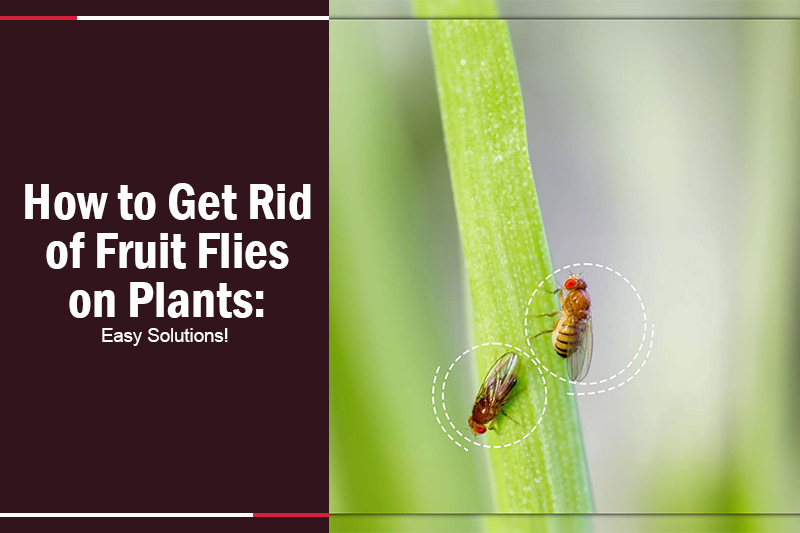
Why Are Flies Attracted to Plants?
Your plants are a magnet for fruit flies due to a couple of key reasons. First off, these little bugs are drawn to any rotting plant bits or other organic stuff breaking down in the plant’s soil. Additionally, if there’s any fungus growing in the soil, or in the tiny nooks and crannies of your plant, fruit flies will be attracted to that too.
There’s also a part of fruit flies’ life cycle that explains their fondness for plants. They lay their eggs just a bit under the soil’s surface. The larvae that hatch find the dark, damp soil an ideal place to grow up, feeding on the various tiny organisms living there.
This makes your plants a double attraction for them – they offer food and a great spot for their young ones to develop.
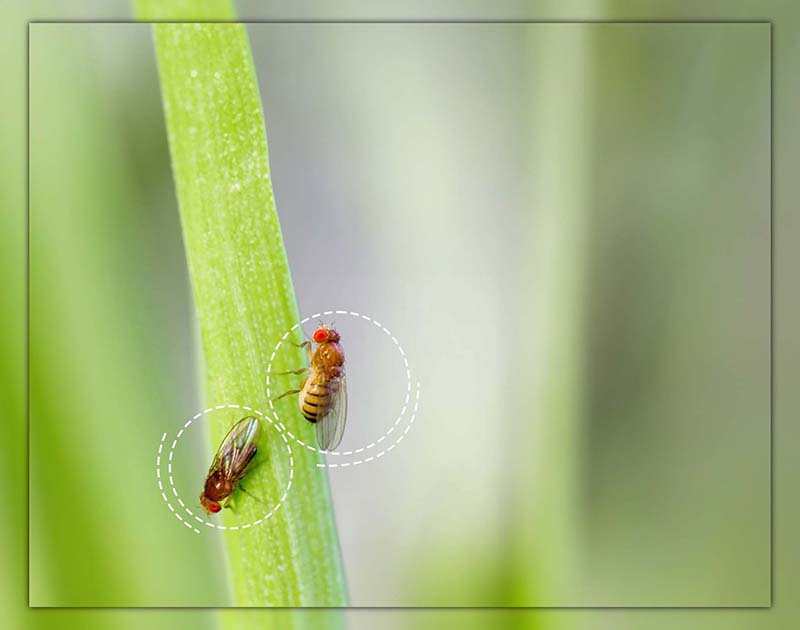
How To Get Rid of Flies in Plants
Fruit flies can be a real nuisance, especially when they infest the plants in your home.
Thankfully, there are several effective methods to get rid of these pesky insects and protect your plants. Let’s explore some practical strategies that can help you tackle this issue.
Disrupt The Soil by Stirring It
Lively potting soil is ideal for fruit fly larvae. Stir the soil occasionally to disrupt their breeding cycle. Flip the top layer of soil to expose eggs and larvae to light and dry air. Alternatively, cover the soil with a barrier like coarse gravel.
Letting the topsoil dry out completely can also be effective (ensure your plant tolerates dry periods). Persistent issues may require repotting: dispose of the old soil securely and clean the pot thoroughly before reuse.
Eliminate The Food Source
Get rid of any fungus on your plants to cut off one of the fruit flies’ favorite snacks. Less humidity helps control fungus.
You can also spray the plant with dish soap or wipe it with rubbing alcohol to keep fungus and other pests away.
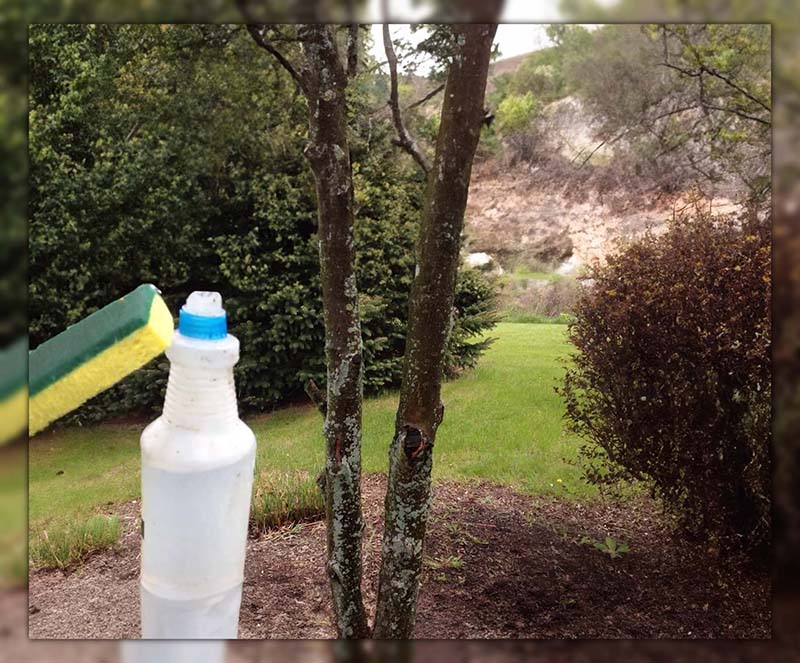
Install Traps to Catch Fruit Flies
Fruit flies love vinegar, wine, and yeast. Use these to make traps they can’t resist. Mix apple cider vinegar, dish soap, and water. The vinegar lures them, but the soap messes with the liquid’s surface, so they fall in and drown.
Put this mix in a dish, cover with cling wrap, and poke holes just big enough for the flies. Put it near the infected plant and clean out dead flies regularly. Or, try a carnivorous plant – there are over 700 types! These also do photosynthesis, so they won’t die once the fruit flies are gone.
Utilize Insect-repelling Plants
Plants like basil, peppermint, lavender, and lemongrass can keep bugs away. They each have their own care needs. If you’re tight on space, put their leaves around the affected plant or in a bag nearby. Essential oils from these plants, eucalyptus, or camphor trees also work well. The scent drives fruit flies away.
Burning these oils as incense can even kill the flies. Covering your house plants with camphor or cedar chips can also help, but be careful if you have pets that might chew on them.
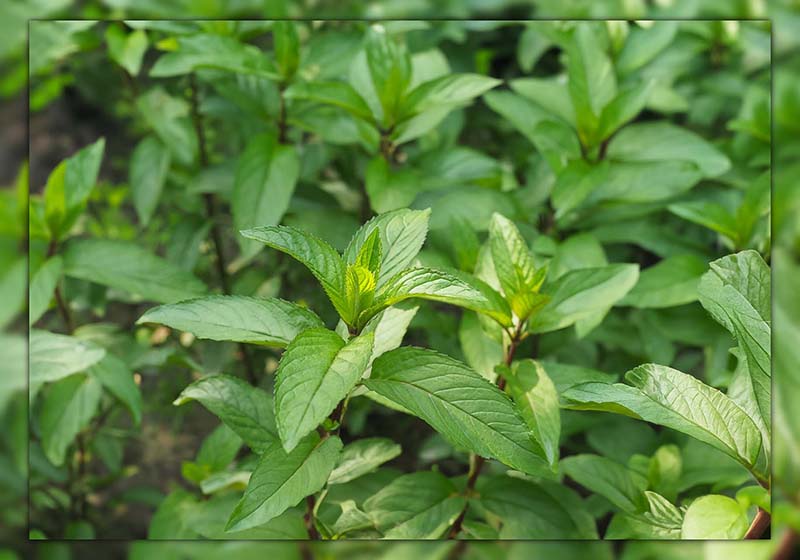
Cover The Surface of The Soil in Your Houseplants to Deter Fruit Flies
Fruit flies live about 8-15 days, and a female can lay up to 2000 eggs! Cover your plant’s topsoil with gravel, pebbles, or sand to stop them from laying eggs. They like laying eggs in topsoil, so covering it takes away their breeding ground. This also stops any maggots in the soil from reaching the surface.
How to Kill Fruit Flies Without Harming Plants
Here are the best ways to say goodbye to those pesky plant flies without hurting your beloved plant:
- Fresh Start: Give your plant a new home with fresh soil.
- Potato Trap: Slice up some potatoes and lay them on the soil. They’ll trap the larvae.
- Gentle Peroxide Touch: Use a solution with hydrogen peroxide on the soil. Be careful not to touch the plant’s roots.
- Drying Out: Let the soil dry between waterings. This step is crucial.
- Soap Bowl Trap: Create a trap using soap and a bowl.
- Sticky Situation: Place sticky traps on the soil’s surface to catch any remaining flies.
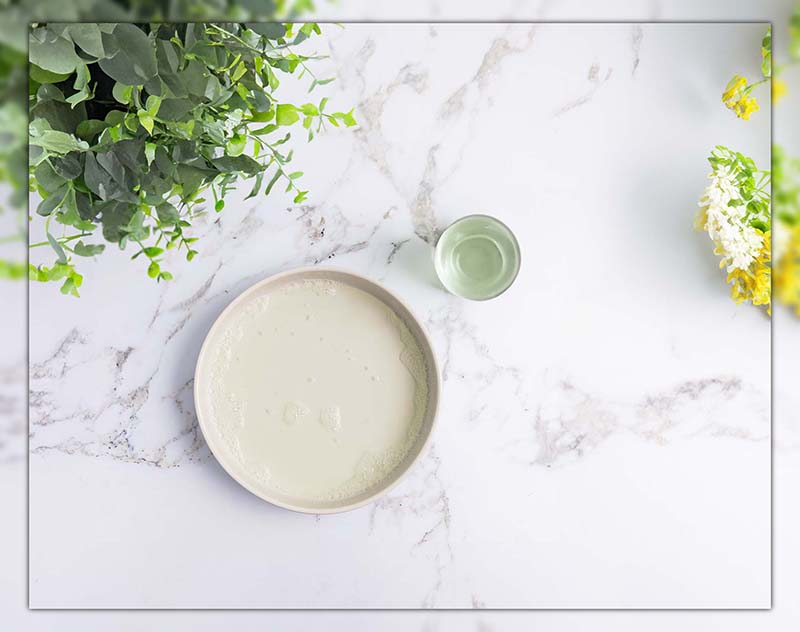
After doing all this, keep an eye on your plant. If, after a couple of weeks, you still see fruit flies buzzing around, you might have to consider more extreme measures, like parting ways with your plant.
Conclusion
In conclusion, managing fruit flies on your plants is a manageable task. The strategies provided in this guide empower you to effectively combat these pests and ensure the health of your plants.
A well-maintained plant is less prone to fruit fly infestations, highlighting the importance of regular care. For additional advice on pest control and plant maintenance, explore our other articles at Pestweek. Our goal is to assist you in maintaining a vibrant, pest-free garden.

Calina Mabel has over 15 years of experience in the field of journalism and communications. Currently, Calina Mabel is the Content Writer for categories such as Cockroach, Ants, Bed Bugs, Mosquito, Rodent, Termite, and Flies on Pestweek.com. She aims to build content for these categories with a focus on providing valuable and accessible information to readers, in order to create the world’s largest knowledge community about Pests.
All content written by Calina Mabel has been reviewed by Emily Carter.

